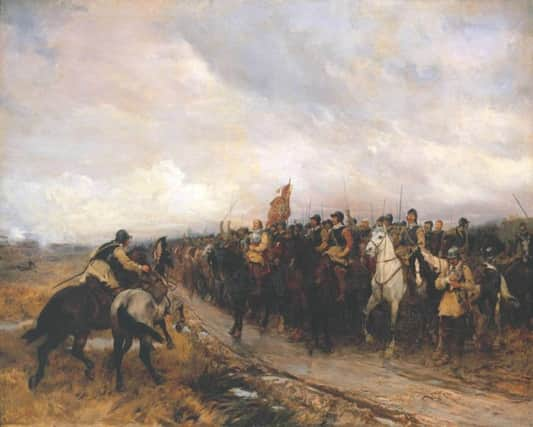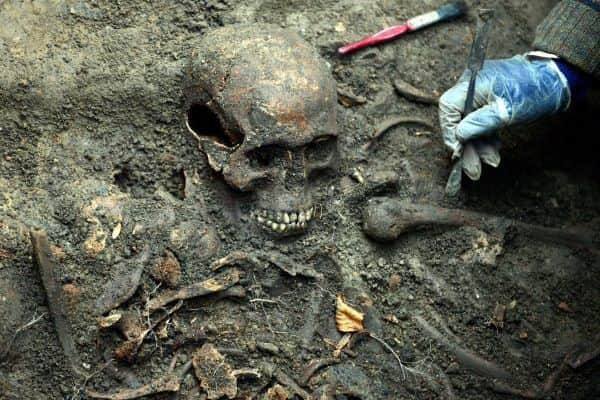Battle of Dunbar prisoners died of 'refeeding' not starvation


At the Battle of Dunbar in 1650, Oliver Cromwell defeated a Scots army loyal to Charles II, killing some 3,000 and taking 10,000 prisoners.
The established account is that Sir Arthur Hesilrige - Crowell’s lieutenant - led the prisoners on a death march to Durham Cathedral, where he let them freeze and starve.
Advertisement
Hide AdAdvertisement
Hide Ad3,500 prisoners of war were estimated to have been killed on the march and during their following imprisonment.


But now a Berwickshire historian has convinced authors of the oldest English-language encyclopedia that the captured Scots actually died because Hesilrige fed, rather than starved them.
Berwickshire historian Laurie Pettitt, 67, has said the Scots soldiers likely died from “refeeding syndrome” - caused by the body reacting in shock to eating after a period of malnutrition.
It was first discovered when Jews and allied soldiers freed from concentration and POW camps began dying after eating, having been underfed for years.
Advertisement
Hide AdAdvertisement
Hide Ad

Mr Pettit - a retired engineer - said the prisoners likely died after eating following a long period of starvation, which actually began long before they were taken prisoner by Cromwell.
He said: “The first sign of people dropping dead, according to a letter Hesilrige wrote, was when they were locked overnight in a field of cabbages.
“Initially it was believed that they poisoned themselves but I believe it triggered something called refeeding syndrome.”
“According to Hesilrige, the men had started to recover and put weight on but then they suddenly died.
Advertisement
Hide AdAdvertisement
Hide Ad“This account is similar to that seen in American soldiers who returned from POW camps in Japan.
“They were put on a rich diet and began to recover and put weight on but then they died suddenly.
“We now know this is refeeding syndrome, so poor Hesilrige tried to help the Scots but didn’t stand a chance.”
Mr Pettit contacted the Encyclopedia Britannica with his theory, and received a response from editor John Cunningham.
Advertisement
Hide AdAdvertisement
Hide AdIt reads: “Upon review, one of my colleagues has revised the article to mention Hesilrige’s role in the care of the Scottish prisoners of war after the Battle of Dunbar.”
In Hesilrige’s encyclopedia entry, the portion on the deaths of prisoners now reads: “Some blame the deaths on mistreatment and food poisoning (labeling the event the “Durham Death March”).
“Others suggest that the cause was refeeding syndrome (the rapid initiation of refeeding after a period of undernutrition, which can be fatal).”
The Encyclopedia Britannica dates back to 1768 - when its first volumes were published in Edinburgh.